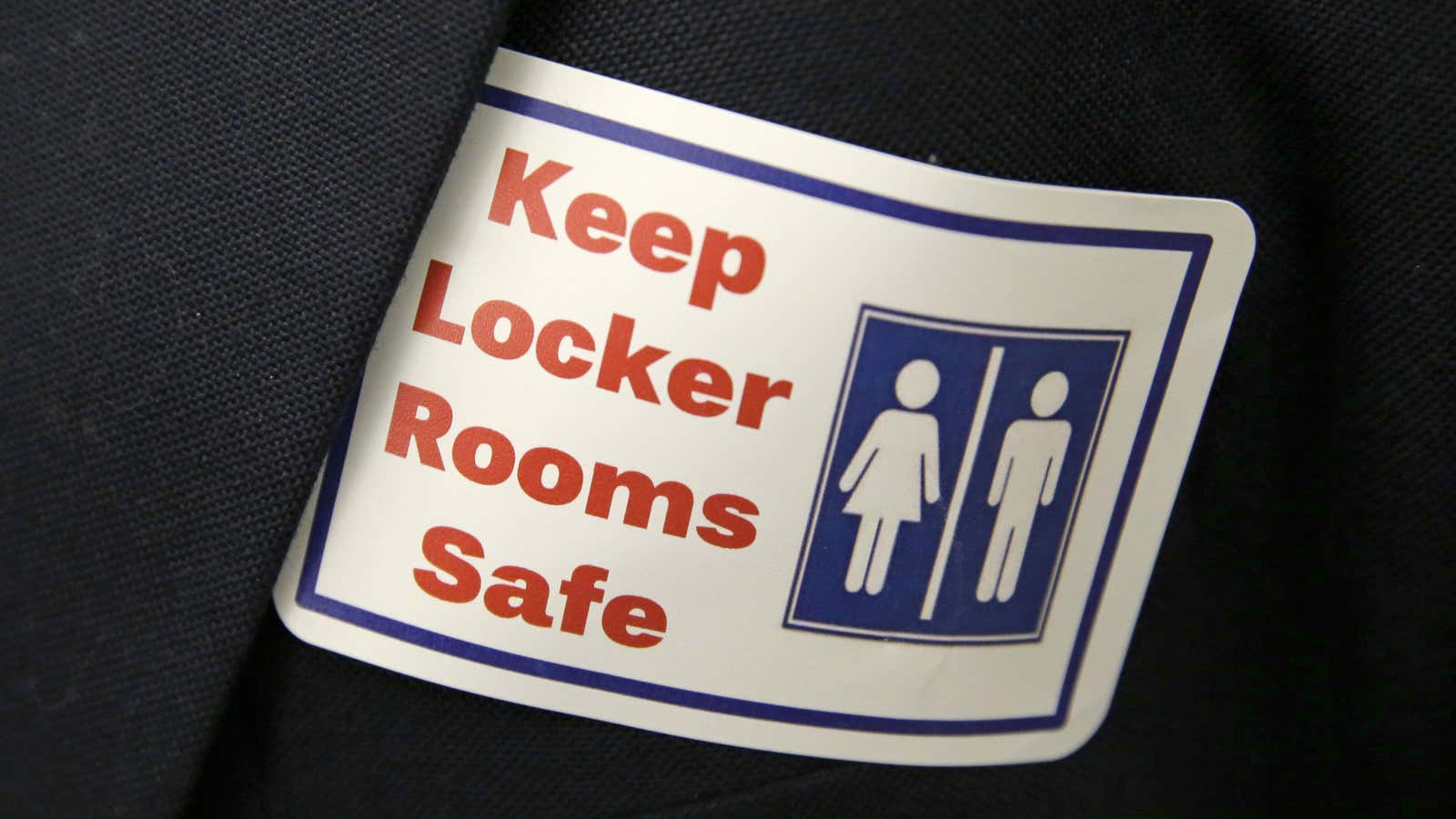Discrimination can get expensive, it turns out. The sticker price for North Carolina’s HB2—a hastily made law that bans transgender people from using public bathrooms consistent with their gender identity, and bans cities from passing anti-discrimination ordinances protecting LGBT people—is pretty shocking. The law will cost North Carolina nearly $5 billion a year.
That’s according to a new report (pdf) by the Williams Institute, a left-leaning research institute out of the University of California, Los Angeles, that looks at LGBT-related public policy issues. Most of that cost will come from the $4.7 billion in federal funding for schools, colleges, and universities that North Carolina’s violation of federal anti-discrimination laws would make it ineligible for. The state also risks losing a couple hundred thousand dollars in other federal funding. Lost business investment is huge, too—PayPal has already scrapped $24 million in planned investment in North Carolina.
But the Williams Institute’s aggregate figure, which adds up to just above $4.9 billion, is leaving a lot out.
For one, it doesn’t include the law’s possible impact on travel spending or tourism; the latter accounts for 5% of North Carolina’s GDP. Five states—Connecticut, New York, Washington, Minnesota, and Vermont—and the District of Columbia have barred all taxpayer-funded government travel to North Carolina. More than 20 counties and cities have done the same. Internationally, the UK warned LGBT travelers about the new law.
Big events are getting cancelled, too. Already, Bruce Springsteen nixed a concert in Greensboro, North Carolina. Charlotte says it has lost 13 conventions as a result of HB2. The National Collegiate Athletic Association and ESPN are considering holding future sporting events elsewhere.
As for government spending, battling legal challenges could get pricey. So could social and economic fallout. Allowing workplace discrimination against trans people will cost North Carolina more than $225,000 in state Medicaid spending, says the Williams Institute. As these government expenditures rise, HB2 will also drag down sales, corporate, and income tax revenues.
However substantial, those costs are presumably acceptable if they help North Carolina prevent women and girls form being assaulted in public restrooms and locker rooms, which governor Pat McCrory and HB2’s other champions say the law will do.
Except the new law doesn’t actually deal with the criminality of bathroom assaults. Assaulting anyone in a restroom or locker room is illegal, everywhere. It continues to be illegal in the slew of states and municipalities that protect trans people’s bathroom rights. And it was illegal in North Carolina before HB2. The only things HB2 does do is require trans people to out themselves when using a public restroom and—after McCrory rolled back some of the bill’s provisions—make it easier for companies to fire people for being LGBT. Meanwhile, instances of trans women assaulting other women, or of men dressing up to enter female bathrooms and assault women, are negligible.
In other words, by clinging to HB2, North Carolina’s government will be forcing its taxpayers to fork over more of their paychecks for the privilege of being protected from a threat that doesn’t exist.
